In honour of the 50th anniversary for Earth Day, we’ve compiled a list of business schemes and incentives offered in the Netherlands to help your business become more environmentally conscious.
Read on to find out which schemes and programs are available to you. Click the links for each scheme to learn more about it, and how you qualify.
MIA and VAMIL Scheme
The MIA and VAMIL scheme refer to a bundle of tax incentives for entrepreneurs who invest in environmentally friendly technology.
MIA scheme enables entrepreneurs to deduct up to 36% of investment costs for environmentally friendly investments on top of regular investment tax deductions. While VAMIL allows you to decide exactly when to write off 75% of your investment costs.
For more information and to apply for either scheme, visit the RVO website.
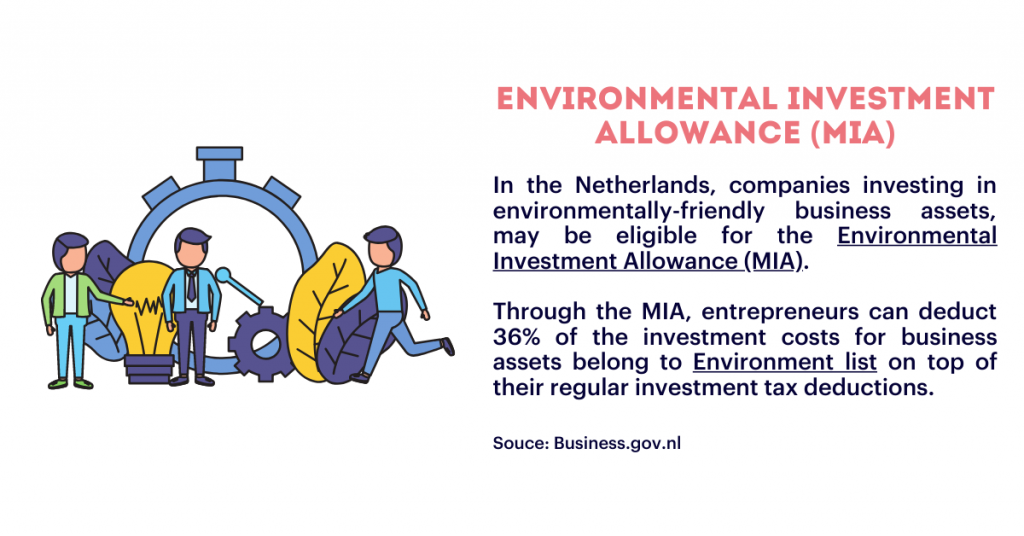
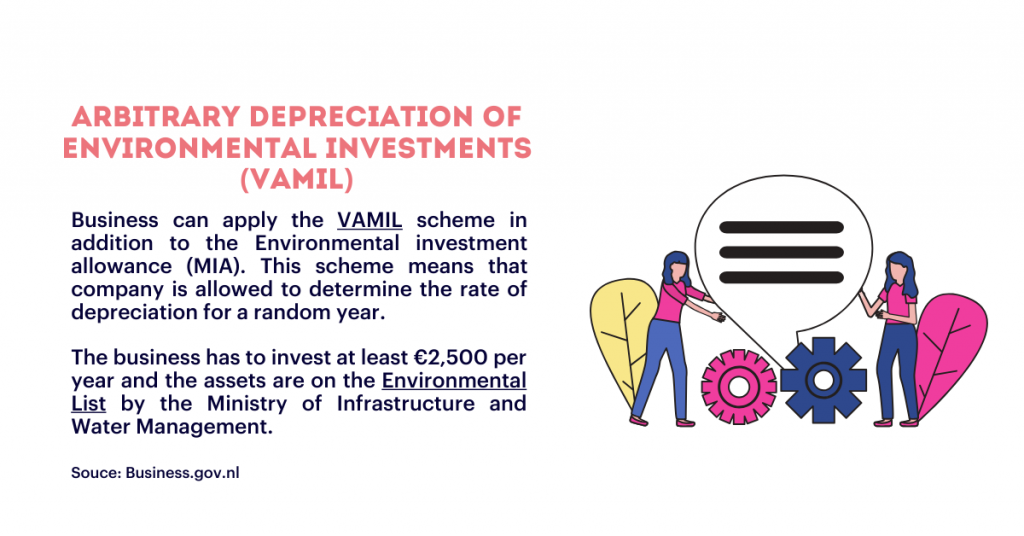
Energy Investment Allowance
Dutch businesses who choose to invest in energy-efficient resources – such as solar panelling or electric cars – will receive a tax break of up to 45% of the initial investment.
Learn more about this allowance, and whether your company qualifies, here.
For more information and to apply, visit the RVO website.
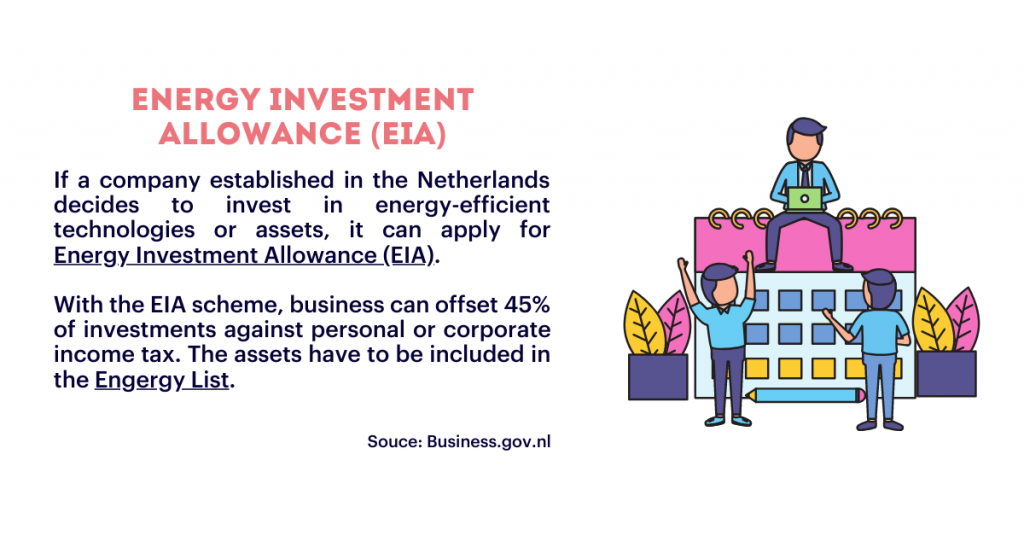
International Clean Energy Partnership
Is renewable energy your business? In the Netherlands, you can join the International Clean Energy Partnership (ICEP) – a network of public and private organisations that promote renewable energy.
The ICEP is a knowledge sharing and networking group focused on supporting SMEs and start-ups. Read more about this partnership here.
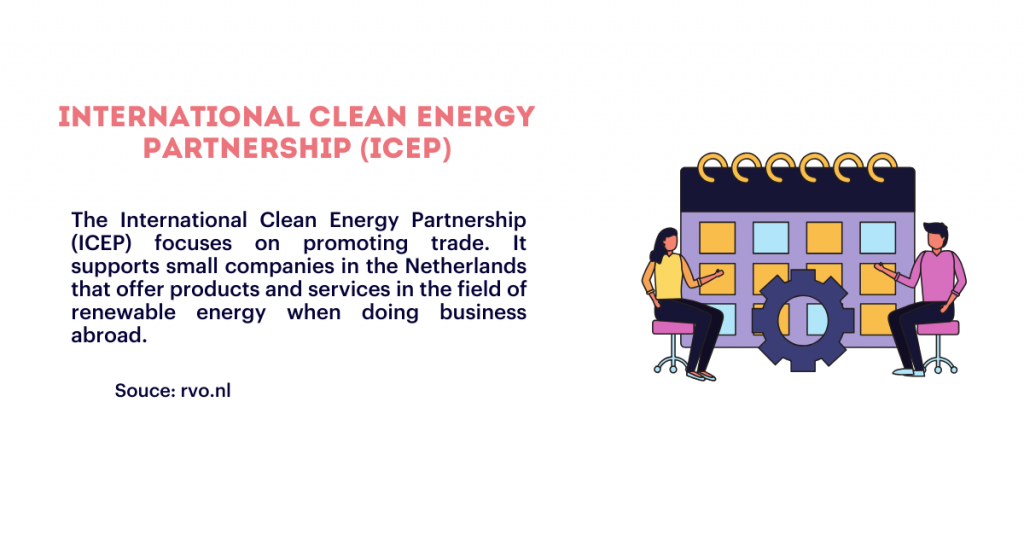

Explained: Pension Schemes in the Netherlands
01-10-21
Money talks – but salary and wages are not the only component of compensation that matters to employees in the Netherlands. In fact, in order to attract the best talent, you need to consider what your ideal employee really values ...

What to expect if you’ve lost your job while working in the Netherlands
23-09-21
Job loss is a fact of professional life – but you don’t have to be surprised by what comes next. While the uncertainty of losing a job can be stressful, both Dutch and non-Dutch people employed in the Netherlands can ...

Setting up in the Netherlands Part 3 – How to hire employees in the Netherlands
15-09-21
Are you looking to start your business in the Netherlands? Hiring new employees is a crucial step to grow your business. The right talent can bring new skills, knowledge and the bandwidth needed to get the best outcome for your ...

Octagon Professionals launches the Japan Desk
06-09-21
Octagon Professionals launches the Japan Desk – HR solutions tailored to the unique needs of Japanese businesses expanding in the Netherlands and Europe Today we’re excited to be officially launching a Japan Desk to provide recruitment and HR solutions to Japanese companies expanding ...

Is it possible for your business in the Netherlands to have employees working all over the world?
19-08-21
If your business employs expats who live and work in the Netherlands, this is likely a question you’ve considered at least once sometime last year. The inability to travel and state of uncertainty during the pandemic is difficult for everybody ...

5 Reasons to Start a Business in the Netherlands
13-08-21
At the beginning of 2020, the NFIA predicted a record-breaking number of foreign companies to expand to the Netherlands. Despite last year’s challenges, many of these businesses were able to adapt and begin their expansion in the Netherlands. Other companies chose to put their ...
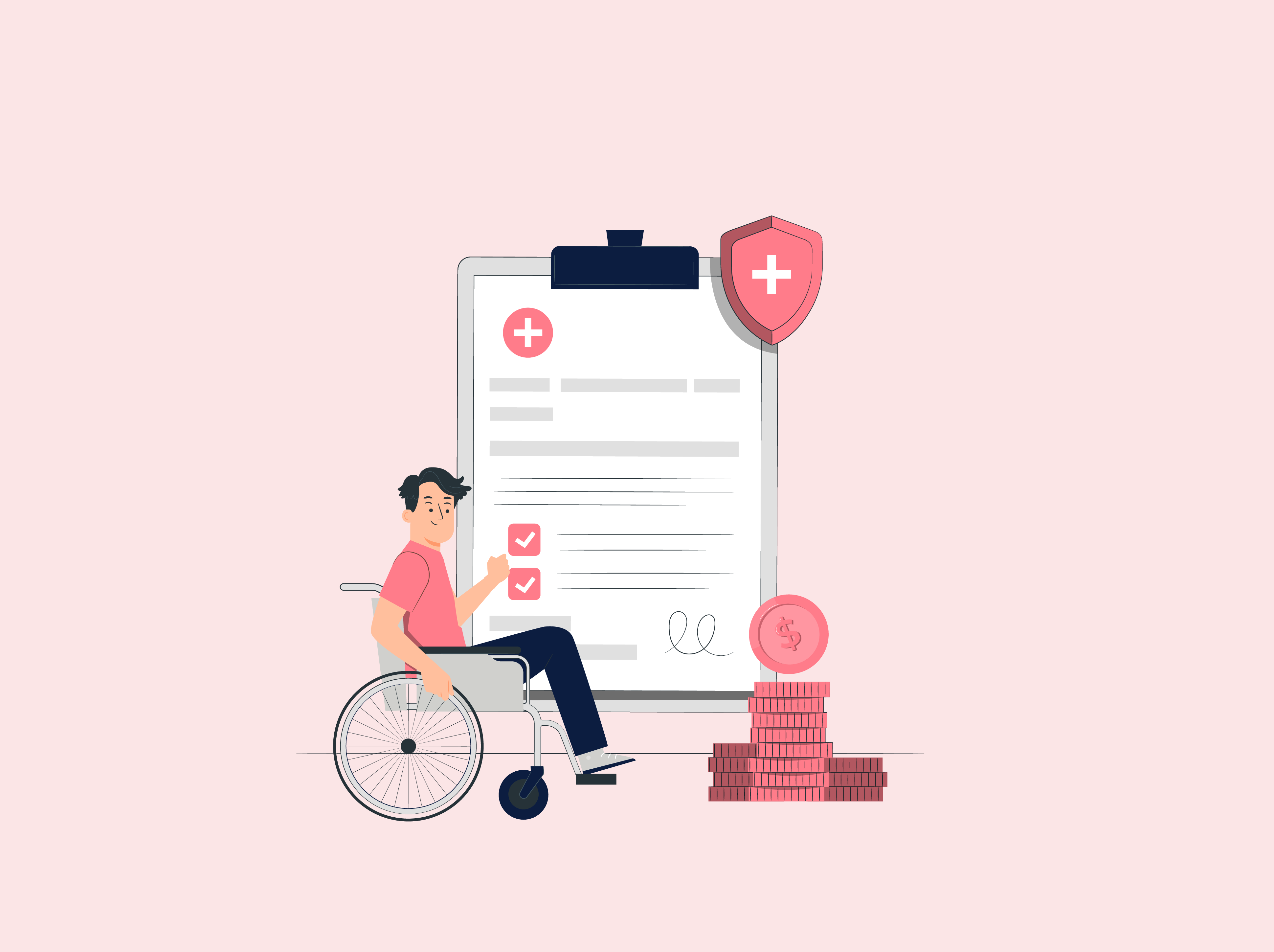
Explained: Health insurance in the Netherlands
05-08-21
Getting ready to move expat employees to the Netherlands? The Dutch healthcare system is highly ranked for quality and innovation, but it is also unlike many other socialised healthcare systems in the world. We find that most expats (especially those ...

Setting up in the Netherlands Part 1 – How to register your business
27-07-21
Before you can open an office, hire an employee or even make a single sale – You need to make your business “official” in the Netherlands. The official work of setting up a business in the Netherlands involves two bodies: The ...
